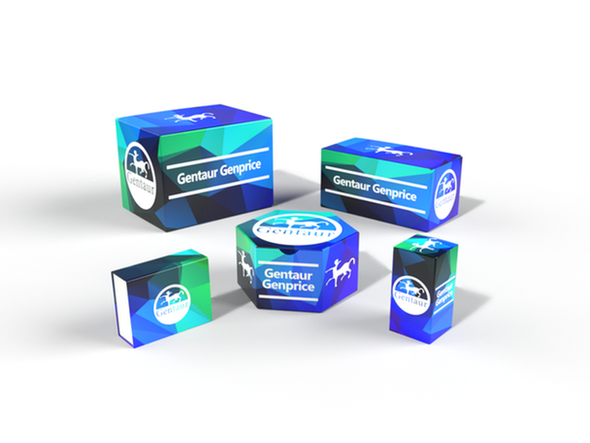740
Human Pygopus homolog 2 (PYGO2/PP7910) ELISA Kit | AE24899HU
- SKU:
- 740-AE24899HU
- Availability:
- Usually ships in 5 working days
Description
Human Pygopus homolog 2 (PYGO2/PP7910) ELISA Kit | AE24899HU | Gentaur UK, US & Europe Distribution
Species Reactivity: Human (Homo sapiens)
Abbreviation: PYGO2
Alternative Name: 1190004M21Rik; FLJ33226; pygopus 2|pygopus homolog 2
Application: ELISA
Range: Request Information
Sensitivity: Request Information
Intra-Assay: ≤6.5%
Inter-Assay: ≤9.8%
Recovery: 1, 1
Sample Type: Serum, Plasma, Other biological fluids
Detection Method: Sandwich
Analysis Method : Quantitive
Test Principale: This assay employs a two-site sandwich ELISA to quantitate PYGO2 in samples. An antibody specific for PYGO2 has been pre-coated onto a microplate. Standards and samples are pipetted into the wells and anyPYGO2 present is bound by the immobilized antibody. After removing any unbound substances, a biotin-conjugated antibody specific for PYGO2 is added to the wells. After washing, Streptavidin conjugated Horseradish Peroxidase (HRP) is added to the wells. Following a wash to remove any unbound avidin-enzyme reagent, a substrate solution is added to the wells and color develops in proportion to the amount of PYGO2 bound in the initial step. The color development is stopped and the intensity of the color is measured.
Product Overview: WNT signaling controls many fundamental processes during animal development. WNT transduction is mediated by the association of beta-catenin with nuclear TCF DNA-binding factors. Lgs encodes the homolog of human BCL9, and the authors provided genetic and molecular evidence that these proteins exert their function by physically linking Pygo to beta-cateninThe PYGO1 and PYGO2 proteins, which contain 419 and 406 amino acids, respectively, possess a highly conserved PHD finger that interacts with homology domain-1 (HD1) of BCL9. The findings suggested that the recruitment of PYGO permits beta-catenin to transcriptionally activate WNT target genes and raised the possibility that a deregulation of these events may play a causal role in the development of B-cell malignancies.
Stability: The stability of ELISA kit is determined by the loss rate of activity. The loss rate of this kit is less than 5% within the expiration date under appropriate storage condition. The loss rate was determined by accelerated thermal degradation test. Keep the kit at 37°C for 4 and 7 days, and compare O.D.values of the kit kept at 37°C with that of at recommended temperature. (referring from China Biological Products Standard, which was calculated by the Arrhenius equation. For ELISA kit, 4 days storage at 37°C can be considered as 6 months at 2 - 8°C, which means 7 days at 37°C equaling 12 months at 2 - 8°C) .






